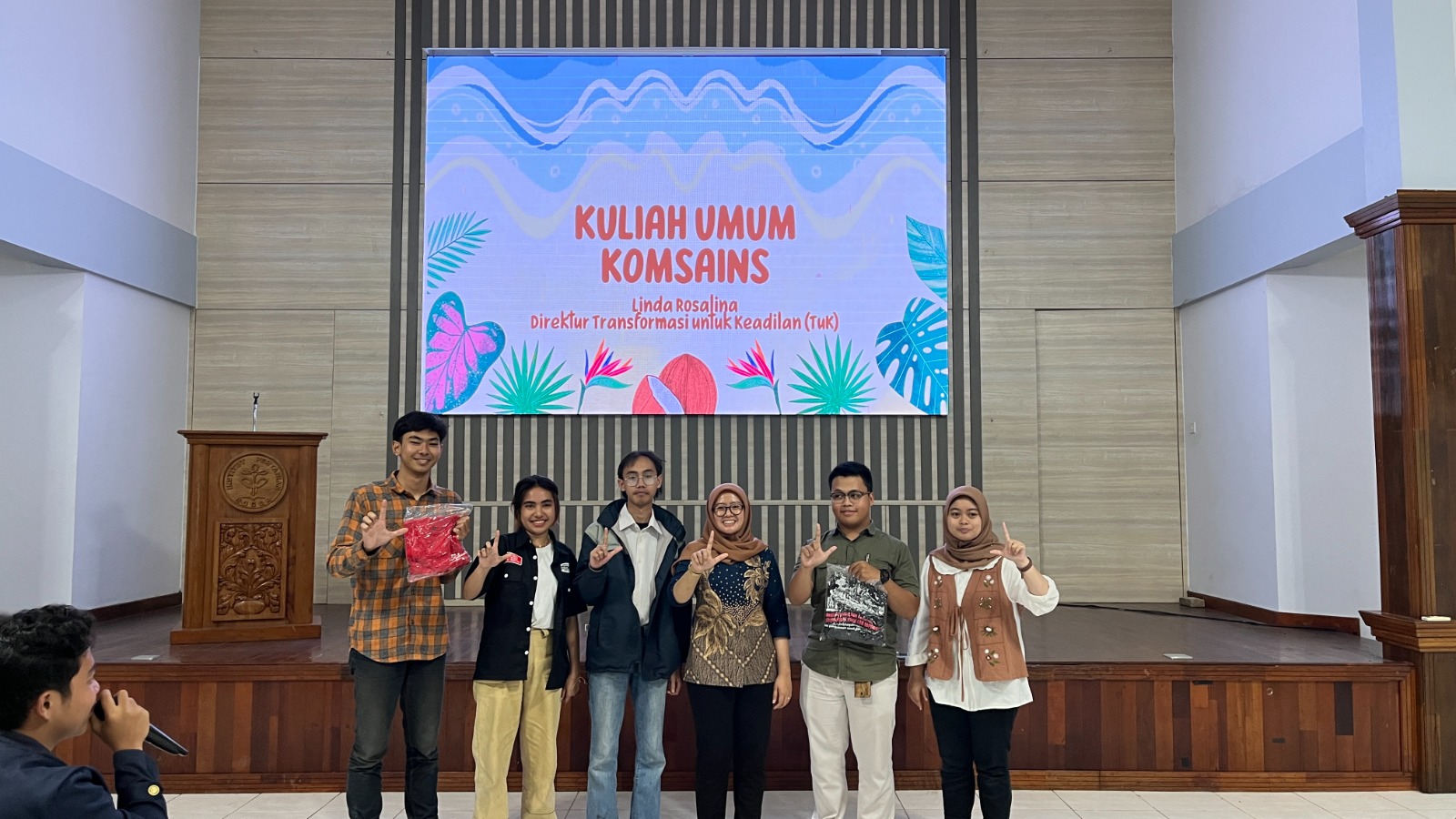11 February 2025 3 menit
TuK INDONESIA Executive Director Becomes Guest Lecturer at IPB University Department of Forest Conservation and Ecotourism

Press Release
Bogor, February 10, 2025 – The Department of Forest Resource Conservation and Ecotourism (DKSHE), Faculty of Forestry and Environment, IPB University, welcomed the Executive Director of TuK INDONESIA, Linda Rosalina, as a guest lecturer in the Communication and Social Sciences for Conservation (KSH1222) course at the Sylva Pertamina Auditorium, IPB Dramaga Campus. Her presence brought a critical perspective on the impact of industry on environmental conditions and human rights through various case studies in Indonesia.
The event began with the screening of the documentary My Chocolate is Killing People, produced by TuK INDONESIA. The film reveals the dark side of the palm oil industry, which not only triggers prolonged agrarian and social conflicts but has also claimed the life of an individual fighting for their rights. Palm oil, a key ingredient in many products—including chocolate we often consume—carries a trail of human rights violations and environmental destruction. The screening sparked an engaging and interactive discussion.
Students actively shared their views, questioned the impacts of exploitative industries that disregard sustainability principles, and discussed their roles in driving change. During the discussion session, Linda Rosalina emphasized the importance of the younger generation in championing social and environmental justice. One of the highlights occurred when Linda posed the question, “What ideas will you carry forward into the future?” The students’ enthusiasm was evident in the various ideas they shared, ranging from advocacy efforts to innovations in the sustainability sector.
Dr. Ir. Arzyana Sunkar, M.Sc., coordinator of the KSH1222 course and lecturer at the Department of Forest Resource Conservation and Ecotourism, highlighted the importance of involving practitioners like TuK INDONESIA for the students. “Practitioners can inspire students to become more aware and engaged in environmental and social issues, encouraging contributions to positive changes in society because they hear directly from those who experience and work on these issues. Especially for this course, students can learn different approaches to crafting and delivering conservation messages and how to build trust and support from a broader audience,” she said.
Meanwhile, Linda emphasized the importance of collaboration between academia and civil society organizations. “We believe that critical education is the first step toward creating change. Students are agents of change, and they need to be equipped with a deep understanding of the impacts of industries on the environment, society, and governance. Often, the impacts of industries result in environmental degradation, the displacement of communities, and unsustainable management practices,” she said.
DKSHE student Shafia Rahma shared her positive impressions of the session. “The documentary shown to kick off the lecture was amazing. Cinematically, it was outstanding and immediately grabbed attention with contemporary dance portraying how communities affected by the palm oil industry are silenced. As students, we can expand our knowledge, and hopefully, we can persuade those around us of the importance of justice. Because as Ms. Linda said, today’s students are the leaders of the future,” she expressed.
This event is expected to mark the beginning of closer collaboration between academia and civil society organizations. Inviting guest lecturers from diverse backgrounds will enrich students’ perspectives and nurture a generation of conservationists who are more sensitive to social and environmental issues.
This post is also available in: Indonesian
